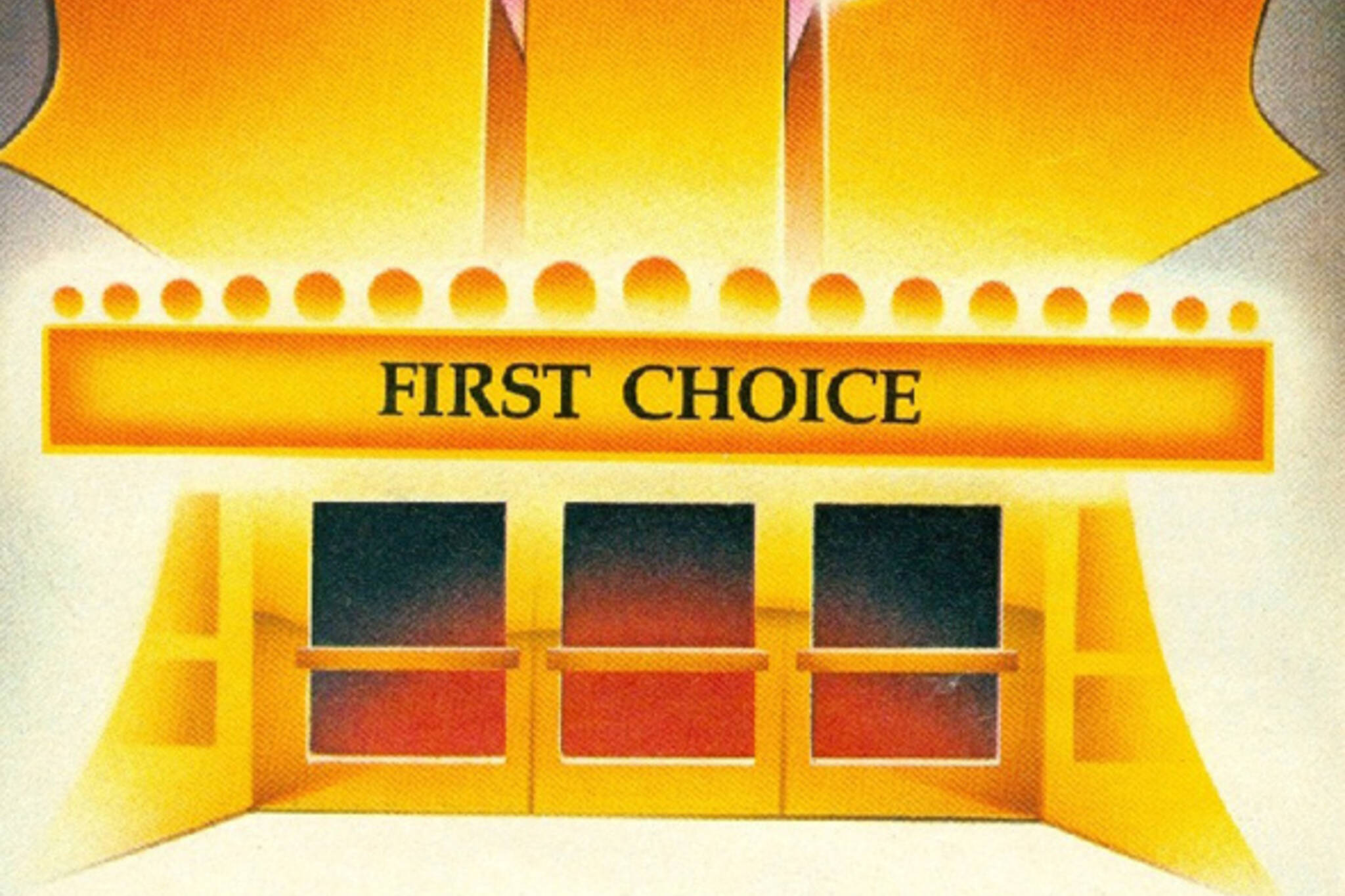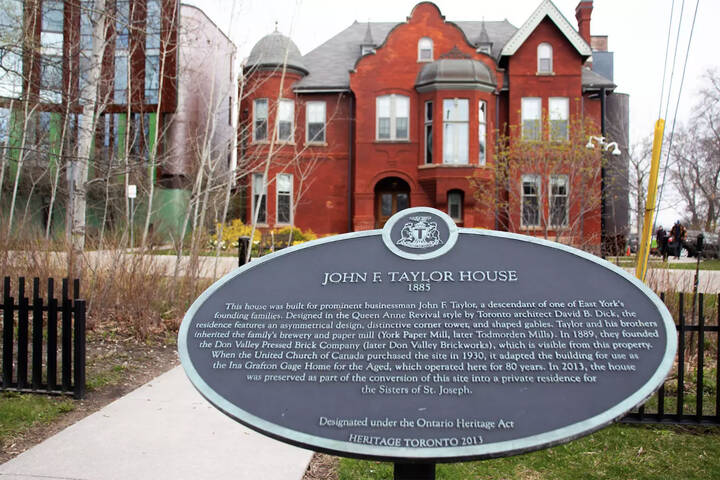
Looking back at the Pay TV wars in Toronto
Exactly 30 years ago today, Pay TV arrived in Canada. As the clock struck midnight heralding February 1, 1983, duelling services fired their opening salvos and premium entertainment starved viewers were treated to an exciting and sometimes bloody David versus Goliath throw down between Central and Western Canadian companies who battled for the hearts, minds and eyeballs of consumers trapped in a miniscule 20 channel universe. "There could be only one."
Canadians had too long been denied the pleasure of dedicated, 24 hour uncut movie channels while south of the border services like HBO and Showtime had carved out a wildly successful business model and proved beyond a doubt the appetite existed for pay television. The promise of uncut movies on tap led to many Canadians investing in home satellite dishes which as well as being an expensive folly were notoriously unreliable, cumbersome and above all hideous blights. Most people in the early 1980s just made do with heavily censored movies on broadcast television (to be fair Toronto denizens had it a-okay with the likes of Elwy Yost's commercial free classic Hollywood fare on TVOntario, or CityTV's eclectic grindhouse meets Hart House selection of Great Movies.
Finally in 1981, the Canadian Radio-television and Telecommunication Commission(CRTC) held a hearing to licence Pay TV in Canada. One year later licences were doled out, and after a full court promotional onslaught during the Fall of 1982, the experiment was ready to begin.
While licences were granted for smaller regional services, all eyes were on the heavy weight nationals, led by undisputed yet untested champ First Choice (tagline: "Look out for number one! Look out for First Choice!"). First Choice promised a heady brew of contemporary Hollywood blockbusters, classic films, concerts, family fare, original Canadian shows and movies, and titillating late night scoops of Playboy programs. All this for only $19.95 per month!
On the opposite end of the cultural spectrum was the infamous C Channel, presided over by former Citytv founding partner Ed Cowan. C Channel reached for the discerning high-brow viewer, focusing on theatre, opera and ballet, as well as foreign art house films and mini-series, yet still retailed for the blue collar friendly sum of $15.95 a month. "People will buy one movie channel, and us" boldly predicted Cowan. By June 30, a mere 5 months later, The C Channel was off the air, the first casualty of the Pay TV war.
Finally, and most cunning of the new pay services was Superchannel (tagline: "Television's brightest star!"). Although initially only granted a licence for Alberta, by the time February 1 rolled around Superchannel had also acquired a second regional channel - lucrative old Ontario - which severely undercut First Choice's play for national dominance. Not only that, Superchannel kicked off on midnight February 1st with the very first Canadian broadcast of Star Wars (Han shoots first version), while First Choice limped out the gate with a re-run of The Who's "final" concert which had aired on Citytv the previous year, followed by brow king Roger Moore's rather pensive James Bond installment For Your Eyes Only (although by 7:00am they eventually had gotten around to screening Star Wars too).
The war of Wars screenings highlighted one of the major problems in the early days of Pay TV - overlapping blue chip titles. Superchannel president Stephen Harris told Starweek magazine "It's like two radio stations. If you listen to either CHFI or CKFM, you're going to be hearing a lot of the same music, but you know they're two different stations and you probably prefer one over the other". Superchannel was more geared towards movies and sporting events (pre-TSN they screened NHL, NBA and Expo and Blue Jay games, for example), and avoided some of the shorter material favored by First Choice. They also famously shied away from adult themed movies with gratuitous nudity for a short while before coming to their senses and providing an important service to curious young males across Canada.
At a mere $15.95 a month, Superchannel quickly got the rep as being a poor man's First Choice, but truth be told both services were exorbitantly priced compared to the cost of basic cable at the time, roughly $12-16 a month. Over at First Choice, programming wizard Phyllis Switzer, another co-partner of the original Channel 79 Citytv gang (along with Cowan, Jerry J Grafstein and Moses Znaimer exclaimed "I came on with terror in my heart because everyone was going out with independent producers around the country spending millions of dollars on programs" Coming from the relative shoe string, scotch tape and glue operation of Citytv, no wonder she was shocked. In its first year alone, First Choice spent upwards of $10 million before a single punter had subscribed. And that was 1983 money.
After C Channel flopped, First Choice and Superchannel's rivalry became more survival of the fittest, while fat cat Hollywood studio execs bowled over in laughter as the two Canadian services' competitive bidding drove the cost of licencing even B-grade pablum sky high. Meanwhile the Canadian press, after an initial period of cheerleading the services (no doubt while they were on free previews), turned and began to ask tough questions about the whole enterprise. Would Pay TV survive in 1984?
Freeviews, or Free Weekends began to appear with more frequency, and with better quality films lined up to showcase each service. First Choice even hired consumer advocate Lynne Gordon and legendary funny man Billy Van to host some of these weekends, stressing that hefty subscription prices were easier to swallow if you broke them down and thought of each film as costing you roughly 60 cents.
Superchannel attempted a much more folksy outreach to viewers in contrast with the slick commercialism of First Choice, hiring well-spoken Western gentleman Fred Keating to appear for all intents and purposes as the face and voice of the station. Keating amusingly hosted a weekly feedback interstitial titled "Mailbag" where he calmly responded to a variety of viewer questions about the nature of Pay TV. "The thinking behind Mailbag was threefold" recalls Keating. "It was meant to be a promotion for the network, an acknowledgement of viewer's concerns, and a way of dealing with the tremendous amount of mail Superchannel received".
Superchannel also hosted a popular monthly interactive special titled "Superchoice", wherein the station offered up four new possible movie titles to be screened on the last Friday of the month, then invited viewers to call a 1-800 number to vote for their favourite. Such interaction may seem positively 8-bit worthy now, but at the time was revolutionary (and probably a nice side revenue line as each call cost $1!).
One of the most lasting and memorable aspects of those early wild west days of Pay TV were the program guides, high end glossy film magazines which were closer in style to Variety than TV Guide. The arrival of a lush new issue in the post was indeed a special occasion.
While both First Choice and Superchannel may have been primarily desired for their A-list Hollywood features, or sleazy T&A sex comedies, both services proudly embraced their Cancon quota requirements. Both channels financed and aired an abundance of home grown Canadian films which to this day remain mostly lost, unavailable in any format: The Terry Fox Story (1983), Sudden Fury (1975), Funeral Home (1980), Mystery of the Million Dollar Hockey Puck (1975), Highpoint (1982), Love at First Sight (1977), The Dog Who Stopped the War (1984), Mark of Cain (1986), Self-Defence aka Siege (1983), to name but a few. First Choice co-produced the notorious TV series The Hitchhiker (1983), a repellant horror anthology that wallowed in cruel violence and degrading nudity when shown on Pay TV, then was later edited into incoherence when screened on basic cable.
Coincidentally it was created by Riff Markowitz, one of the original applicants of the First Choice licence and producer of the much loved and revered The Hilarious House of Frightenstein (1971).
As 1984 wore on, both stations found themselves in a stalemate. Through some imaginative wheeling and dealing, Superchannel had tied up much of the desirable A-list studio fare, while First Choice was forced to drop all Playboy content if they hoped to acquire Walt Disney titles. Around the same time, MuchMusic and TSN had been granted licences so music and sports programming was gravitating away. However First Choice held the best card of all - National exposure. It was time for an arranged marriage.
Owing to a near ruinous freshman year, the two Pay TV networks had little choice but to merge into one, imaginatively titled First Choice*Superchannel. Bundled with new cable kids on the block Much Music and TSN: The Sports Network, "the Satisfaction 3-Pack" retailed for $15.95 per month and finally gave viewers a little more bang for their buck. All of Frist Choice's branding was abandoned in favor of Superchannel's more colourful fanfare, but sadly Fred Keating's "Mailbag" was given the boot in favour of letting the content speak for itself, a portent of the grey, no frills approach taken by most modern day Pay TV services.
First Choice*Superchannel's marriage of convenience was really just a holding pattern until the kinks of a splitting up two monopolies could be ironed out. Innovation during this drawn out period included the interactive shot-in-Toronto Sci-Fi whodunit Murder in Space (1985), which ended on a cliff-hanger and invited viewers to solve a murder mystery and win trips to Florida. Unfortunately the resolution to what should have been a by the numbers bit of fun Agatha Christie pulp proved to be so convoluted that no one correctly guessed the multiple identities of the murderers, and the much hyped event was never repeated (never mind the film becoming yet another buried cult classic, with stand-out performances from a shouty Michael Ironside and pre-Diabeetus meme generator Wilford Brimley.
Ironically the most interesting programming on First Choice*Superchannel at the time was proto YouTube "The Great Canadian Shorts Contest" which ran for almost a decade and invited budding wannabe Spielberg's to enter their short films for consideration. Finalist's short films then ran nationally between features, while viewers filled out a ballot in PRIME TIME magazine and voted for their favorites. Winners could receive cash prizes up to $5,000.00, an encouraging amount for young video and Super 8 enthusiasts.
By the end of the 1980s, First Choice*Superchannel finalized their divorce. Ontario and all provinces East were given a tweaked First Choice: The Movie Network (later, bizarrely shortened to just The Movie Network, and then finally the totally uninspired "TMN"), while Manitoba and all provinces West received Superchannel, later renamed "Movie Central" after being purchased by Corus in 2001.
Now that accessing Pay TV is about as exciting and ground breaking as getting water from a tap, it is easy to forget what a buzz all this was 30 years ago. With all of the selection we have now in a 1000+ channel universe it's hard to get excited about new services, however rarely it does happen. In 2007, the Allard family (who in 1983 originally launched Superchannel) broke the National monopoly when they ushered in a new and improved Superchannel.
More recently in 2011, Hollywood Suite launched 4 commercial free, uncut HD channels specializing in a mixture of studio classics and Canadian pictures, with a lot of titles that would have aired on First Choice*Superchannel back in the day. If you have an HD set, the service is offering a free preview on Rogers until the end of March. It has been suggested that the package will probably end up costing roughly $6 per month, a far cry from the $19.95 range early Pay TV charged. Now if only they could air Star Wars at midnight...
Special thanks to Fred Keating, Joan Schafer and Robert Richardson.
Retrontario plumbs the seedy depths of Toronto flea markets, flooded basements, thrift shops and garage sales, mining old VHS and Betamax tapes that less than often contain incredible moments of history that were accidentally recorded but somehow survived the ravages of time. You can find more amazing discoveries at www.retrontario.com.
Latest Videos
Latest Videos
Join the conversation Load comments







